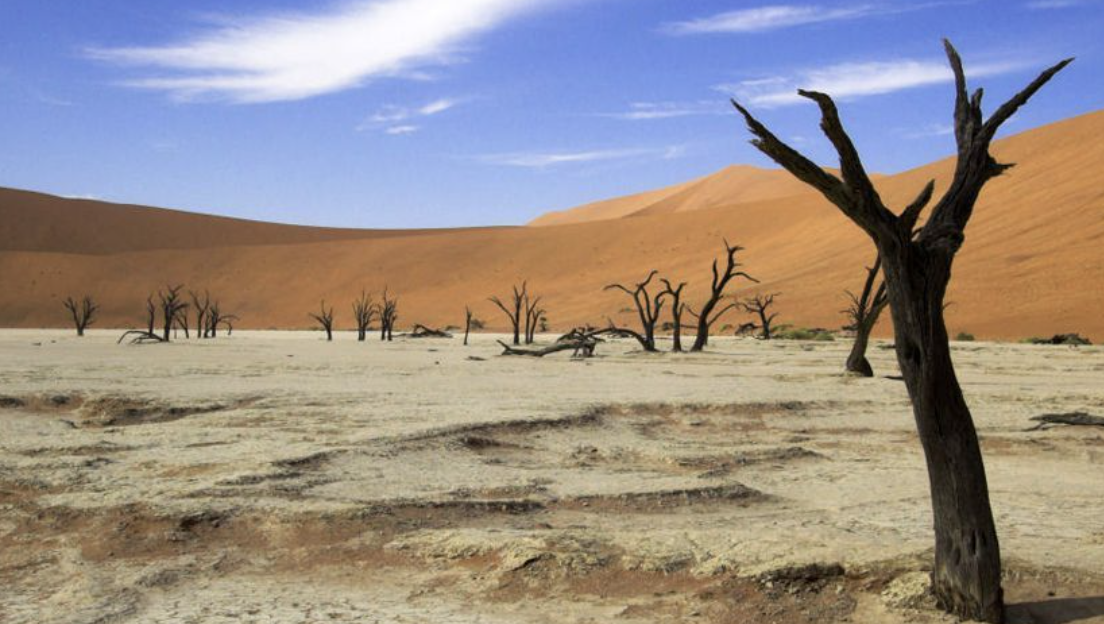
Rescuing the Planet: IRC, CBA, and LVMH Join Forces to Promote Sustainable Cotton Farming and Combat Climate Change in Central Africa
The International Rescue Committee (IRC), in partnership with the Circular Bioeconomy Alliance (CBA), luxury fashion company LVMH, and leading global tech companies, is launching a new initiative to address climate change in Central Africa. The new program will focus on leveraging technology and innovation to tackle deforestation and land degradation around Lake Chad, while promoting sustainable agriculture and economic development in the region.
The initiative will include the deployment of cutting-edge technology such as satellite imagery and blockchain to track and monitor land use changes and prevent deforestation. The partnership will also support the development of sustainable agricultural practices, including the promotion of regenerative agriculture and agroforestry.
The program will work closely with local communities, providing training and support to farmers and encouraging the adoption of sustainable practices that promote biodiversity and protect fragile ecosystems. The program also aims to create new economic opportunities in the region, supporting the growth of local businesses and providing new markets for sustainable agricultural products.
Commenting on the partnership, IRC President and CEO David Miliband said: “This initiative represents a powerful new approach to addressing the challenges of climate change and economic development in Central Africa. By leveraging technology and innovation, we can create new solutions that promote sustainability and resilience in the region, while also supporting the economic well-being of local communities.”
The International Rescue Committee (IRC) is a humanitarian organization that responds to some of the world’s worst crises, helping people whose lives and livelihoods have been shattered by conflict and disaster. Founded in 1933 at the request of Albert Einstein, the IRC has since provided aid and support to millions of people across the globe.
The organization’s mission is to provide emergency relief, rehabilitation, and post-conflict development to communities affected by conflict or natural disasters. This includes providing essential services such as healthcare, education, and clean water, as well as offering protection to the most vulnerable members of society, including women and children.
The IRC is renowned for its work in some of the most challenging and dangerous environments in the world, including war zones and areas affected by disease outbreaks. The organization’s work is guided by a set of core values that include accountability, diversity, and respect for human rights.
One of the key strengths of the IRC is its ability to respond rapidly to emergencies, with teams of experienced aid workers on standby around the clock. In addition to its emergency response work, the IRC also works to promote long-term sustainability and self-sufficiency, helping communities to rebuild and develop in the aftermath of crisis.
The IRC is funded by a combination of government grants, private donations, and corporate partnerships. The organization’s corporate partners include major companies such as Google, Airbnb, and Starbucks, as well as luxury fashion company LVMH, with whom they are working on a project to support sustainable cotton growing in Chad.
In addition to its work in the field, the IRC also plays a key role in shaping policy and advocating for change on a global level. The organization’s research and advocacy work has helped to influence governments and international bodies, bringing attention to some of the most pressing humanitarian issues facing the world today.
Overall, the International Rescue Committee is a vital organization that plays a critical role in responding to some of the world’s most pressing humanitarian crises. Through its work, the IRC offers hope and support to millions of people who have been affected by conflict, natural disasters, and other emergencies.
The Circular Bioeconomy Alliance (CBA) is an initiative that was launched by King Charles III in collaboration with leading companies and organizations. The aim of this alliance is to promote sustainable economic growth by implementing innovative solutions that prioritize the principles of circularity and sustainability.
The CBA is an innovative approach that has gained global recognition as a pioneering initiative for the promotion of sustainable development. The alliance operates on the principle that natural resources are finite, and therefore need to be used in a manner that promotes sustainability. This means that there is a need for a shift in the traditional linear economic model that relies on the extraction, production, consumption, and disposal of resources. Instead, the CBA aims to promote a circular economy, where resources are regenerated and reused in a manner that reduces waste and promotes the efficient use of natural resources.
The alliance brings together a diverse group of stakeholders from various sectors, including academia, government, non-governmental organizations, and the private sector. This diversity of stakeholders enables the alliance to generate innovative ideas and solutions to the challenges facing the world today. Through its partnerships, the CBA has been able to leverage expertise, resources, and networks to accelerate the implementation of sustainable solutions.
One of the key focus areas of the CBA is the promotion of sustainable agriculture. The alliance recognizes the importance of sustainable agriculture in addressing food security, poverty reduction, and climate change. The CBA works closely with local communities to promote sustainable agricultural practices that improve the livelihoods of farmers while protecting the environment. By promoting sustainable agriculture, the CBA aims to build resilient and sustainable communities that can withstand the effects of climate change.
Another area of focus for the CBA is the promotion of sustainable fashion. The fashion industry is known for its negative impact on the environment due to the use of non-renewable resources, water pollution, and waste generation. The CBA aims to promote sustainable fashion by supporting initiatives that promote the use of renewable resources, reduce waste, and promote circularity in the industry. Through its partnerships with leading fashion companies, the CBA has been able to promote sustainable fashion and raise awareness about the importance of circularity in the fashion industry.
The CBA has also been instrumental in promoting the use of renewable energy. The alliance recognizes the importance of renewable energy in addressing climate change and promoting sustainable development. Through its partnerships with leading energy companies, the CBA has been able to promote the use of renewable energy in various sectors, including agriculture, manufacturing, and transportation.
In conclusion, the Circular Bioeconomy Alliance is a pioneering initiative that aims to promote sustainable economic growth through the implementation of circular and sustainable solutions. The alliance has been able to leverage partnerships to accelerate the implementation of sustainable solutions in various sectors, including agriculture, fashion, and energy. Through its partnerships, the CBA has been able to promote sustainable development and build resilient and sustainable communities that can withstand the effects of climate change.
LVMH, or Louis Vuitton Moët Hennessy, is a French luxury fashion conglomerate that was founded in 1987. The company is headquartered in Paris and is home to a range of high-end fashion brands, including Louis Vuitton, Dior, Fendi, Celine, and Givenchy, among others.
LVMH is widely considered one of the most valuable luxury goods companies in the world, with a portfolio of over 70 brands and a presence in over 150 countries. The company is known for its commitment to quality and craftsmanship, as well as its innovative designs and collaborations with artists, designers, and architects.
In addition to its focus on fashion and luxury goods, LVMH has also made a strong commitment to sustainability and environmental responsibility in recent years. The company has pledged to reduce its carbon emissions by 25% by 2025 and has set ambitious targets for its supply chain, including using only sustainably sourced raw materials and promoting circular economy practices.
One of LVMH’s most recent sustainability initiatives is its partnership with the Circular Bioeconomy Alliance (CBA) and the International Rescue Committee (IRC) to address the impact of climate change on the Lake Chad basin in Central Africa. Through this partnership, LVMH is working to support sustainable cotton growing and restore biodiversity in the degraded land around Lake Chad.
LVMH has also made a commitment to implement regenerative agriculture in all of its strategic supply chains. This includes investing in agroforestry, which involves integrating trees into agricultural landscapes to promote biodiversity and soil health, and reducing the use of pesticides and other harmful chemicals.
Beyond its environmental commitments, LVMH has also made strides in social responsibility and philanthropy. The company established the LVMH Fund for Women in 2020 to support women’s empowerment and entrepreneurship around the world. The fund provides financial and mentoring support to female-led startups and small businesses.
Overall, LVMH is a company that has established itself as a leader in the luxury fashion industry while also demonstrating a strong commitment to sustainability and social responsibility. Its partnerships with organizations like CBA and IRC show a willingness to use its resources and influence to address global challenges like climate change and biodiversity loss.

